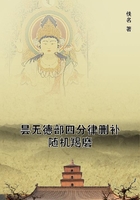The decisions to which the different Estates arrived were at the end of the session condensed into one single document, known under the name of Zemskii prigovor, which means the general verdict of the land. Several documents of this kind have been preserved. They are sealed, as a rule, with the seals of the Czar, of the Patriarch, and of the higher orders. As to the lower orders, their members kissed the cross in sign of approval.
Having thus considered the political history and internal constitution of the Sobors we will now examine the functions which they discharged. Foreign residents, and among them the well-known Fletcher, have noticed certain weak points in their organisation which prevented our representative Assemblies from rising to the level of English Parliaments. Fletcher makes the ingenious observation that the members of the Sobor had no right to present bills. This does not imply that the initiative of all reforms could proceed only from the Government; more than once the Estates complained of wrongs which were not mentioned in the address from the crown and asked for reforms which had not been thought of by the Government. But their right to petition the crown did not go further than that of the French Estates-General.
Like them the Sobors were unable to provide for the fulfilment of their demands, and for the same reason which prevented the Estates-General of France from getting into their own hands the legal power. The right of initiating reforms, which the English Parliament began to exercise under the Lancastrian kings remained totally unknown in France as well as in Russia. At the time when the English Parliament were replacing petitions by bills, the French Estates continued to present their cahiers de doleances, leaving to the Government the right of taking in its ordonnances no notice whatever of their demands. The same was also the case in Russia, where new laws were directly decreed by the Czar and his Douma and the "general verdict of the land" remained for years and years inoperative.
If the Sobors only played a secondary part in matters of legislation, the control that they exercised over the executive machinery of the State was even less efficacious. I cannot mention a single case, in which royal councillors were removed and new persons appointed in their stead at the express desire of the Sobor. The Moscovite Government was, it is true, in no way a Parliamentary Government. Nevertheless the fact does not prove that the Sobors had nothing in common with English Parliaments or French States-General. We must not forget that medieval Europe was, as a rule, ignorant of Parliamentary Government, and that Assemblies, like the Mad Parliament of Oxford or the revolutionary French Estates of 1355, both of which tried to establish a kind of cabinet, were but exceptions. Although the Sobor had no right to impose on the Czar the obligation of calling certain persons to his counsels, the part it took in the general politics of the country was a large one. We have had occasion to show that questions of war and peace were settled by its advice. Both the surrender of Asov and the annexation of Little Russia took place in compliance with its desires. And though the Sobor was denied the right of choosing the Ministry, it had a much higher right, that of choosing the Czars. On this point it had no grounds to envy either the English Parliaments, or the States-General of France.
So long as the new dynasty of the Romanovs remained faithful to the engagements entered into by the Czar Michael, that is to say during the first part of the seventeenth century, the voting subsidies was as much the function of the Russian representative Assembly as it was of the representative Assemblies of England, France, Germany, or Spain. During the greater part of the reign of the first Romanov no subsidy was levied, no benevolence extorted without the consent of the Sobor. This scrupulous observance of its financial authority required its periodical convocation just as much as the meeting of the English representatives was needed many years before the introduction of triennial and septennial parliaments. Excepting during the period just mentioned, the Sobors were summoned at irregular periods and only when the needs of the Government required their help. Like other representative Assemblies they were convened and dissolved by the sovereign, and had no right to assemble according to their own will.
If we would know what good they have done to Russia we must study the part they have played in the removal of public grievances and the reform of justice. We must remember that more than once they opposed the oligarchical Government of the boyars, the local despotism of provincial Governors or voivodes, and the bribery and exactions of the bureaucracy of Moscow. We must remember how often they were the champions of justice and equality in opposing the system of judicial immunities, the extravagant donations of crown lands, and the exemption from taxation of the nobility and clergy. We shall then have no difficulty in acknowledging that their influence was truly beneficial. On several occasions they had the honour of participating in large administrative and judicial reforms, such as the codification of the law and the abolition of the abnormal custom by which offices in the army were held, not by men of ability and talent, but by those of aristocratic birth. Foreign politics were more than once treated by the Sobors with discernment and practical good sense. Their patriotic and religious feelings did not keep them from recognising the danger of a new war and the necessity of relinquishing a conquest which had been easily made. On the other hand their natural dislike of new taxes did not prevent them from stretching out a helping hand to their orthodox brethren in their endeavours to emancipate themselves from the religious persecution of Catholic Poland.














